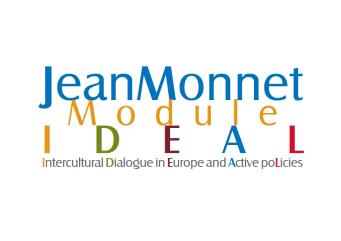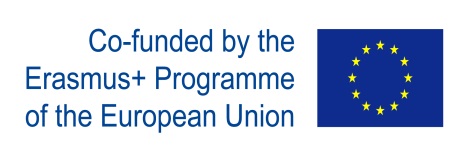- Ateneo
- Jean Monnet Module
- Programme
- a.y. 2016/17
a.y. 2016/17

 IDEAL MODULE is a 45 contact hours course in english (5 ECTS)
IDEAL MODULE is a 45 contact hours course in english (5 ECTS)
For the academic year 2016/17 it will take place at Università Cattolica (Via Carducci Building) from 22 May to 1 June, 2017, and is articulated in 3 different interdisciplinary modules:
1. Introduction Module: an intercultural perspective on the history of the integration and the european citizenship
- Europe: 21th century’s challenges facing radicalism, intolerance, nationalism
- History of European integration
- Basic elements of EU legislation
- Process of identity- and citizenship-building in Europe: an intercultural dialogue perspective
- Recognizing and preventing neo-racism in Europe
2. Sociological Module on migration, processes and integration policies in Europe
- The European migration system and its transformations
- Migration policy and integration in Europe
- The European political agenda for intercultural dialogue
- The role of civil society organizations and their interventions for migrants and against racism
3. Thematic module on the theory and practice of the international mediation, intercultural education and dialogue in the European context
- Cultural mediation in Europe and in the Mediterranean area: the historical roots
- Challenges for inclusion
- Interculturalism: problems and concepts
- The frame of international and intercultural education in Europe
- Education in the culturally diverse context
- Introduction to Cross-Cultural Psychology
READING LIST FOR EXAMINATION
For point 1, the student chooses one of the following textbooks:
- in: Bekemans L. (2013), Globalisation vs Europeanisation. A Human-centric Interaction, Peter Lang: Brussels, Bern, Berlin, cap. 2
- IDEM cap. 3
- IDEM cap. 12
For point 2 the student chooses one of the following textbooks:
- Ruspini, P. (2014), The Transformative Character of International Migration and its Impact on Integration Practices and Learning Needs, in F. Bignami, M.G. Onorati (eds), Intercultural Competences for Vocational Education and Training. Experiential Learning and Social Contexts for Enhancing Professional Competences, Milan, Egea, pp. 89-98
- Ruzza C. (2013), Civil Society Actors and EU Fundamental Rights Policy: Opportunities and Challenges, in “Human Rights Review", 15 (1), pp. 65-81.
- Dines N., Montagna N., Ruggiero V. (2015), Thinking Lampedusa: border construction, the spectacle of bare life and the productivity of migrants, in “Ethnic and Racial Studies”, 38(3), pp. 430-445.
- Caponio T., Cappiali M.T. (2016), Exploring the Current Migration/ Integration ‘Crisis’. What Bottom-up Solutions?, Vision Europe Summit, pp. 6-17.
For point 3 the student chooses one of the following textbooks:
- Santerini M. (2015), Committee on Equality and Non-Discrimination, Parliamentary Assembly, Recognising and preventing neo-racism, Strasbourg.
- Pusztai G. (2006), Community and Social Capital in hungarian Denominational Schools Today, in "Religion and Society in Central and Eastern Europe", vol. 1(2), pp.1-17.
- EU Parliament (2016), The role of intercultural dialogue, cultural diversity and education in promoting EU fundamental values. European Parliament resolution of 19 January 2016.
- Matsumoto D., Hee Yoo S., Fontaine J. (2008), Mapping Expressive Differences Around The World. The Relationship Between Emotional Display Rules and Individualism Versus Collectivism, in “Journal of Cross Cultural Psychology”, 2008, 29-55.
![]() Course programme (26,71 KB)
Course programme (26,71 KB)
![]() Schedule - a.y. 2016/17 (64,01 KB)
Schedule - a.y. 2016/17 (64,01 KB)
